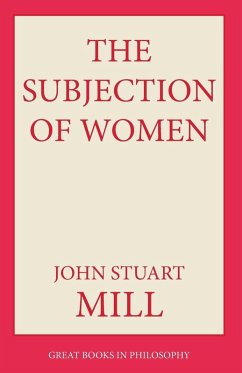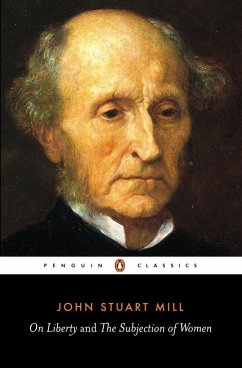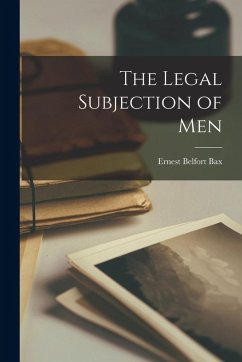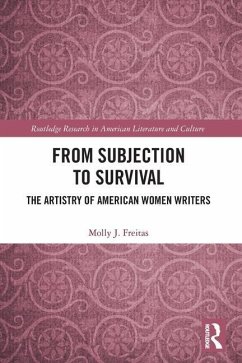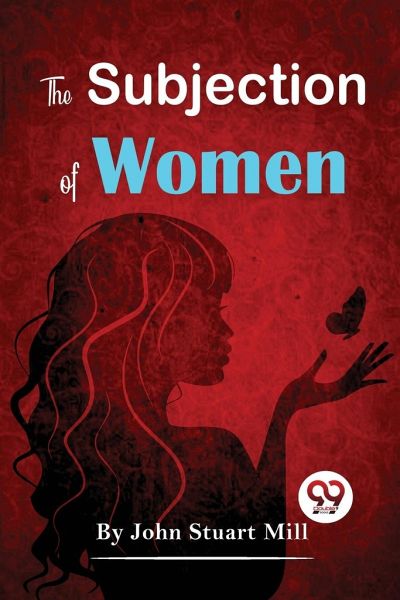
The Subjection Of Women
Versandkostenfrei!
Versandfertig in 1-2 Wochen
16,99 €
inkl. MwSt.

PAYBACK Punkte
8 °P sammeln!
English philosopher, political economist, and civil servant John Stuart Mill wrote an essay titled "The Subjection of Women" in 1869 that contains concepts he and his wife Harriet Taylor Mill jointly developed. Soon after her tragic passing in late 1858, Mill finalized the manuscript for their joint work On Liberty (1859) and continued writing The Subjection of Women until its completion in 1861. The essay's defense of gender equality at the time of its publication was seen as a challenge to European traditional conventions surrounding the standing of men and women. Although most academics con...
English philosopher, political economist, and civil servant John Stuart Mill wrote an essay titled "The Subjection of Women" in 1869 that contains concepts he and his wife Harriet Taylor Mill jointly developed. Soon after her tragic passing in late 1858, Mill finalized the manuscript for their joint work On Liberty (1859) and continued writing The Subjection of Women until its completion in 1861. The essay's defense of gender equality at the time of its publication was seen as a challenge to European traditional conventions surrounding the standing of men and women. Although most academics concur that John Stuart Mill wrote the article alone, it is also observed that several of the points are similar to those in Harriet Taylor Mill's 1851 essay The Enfranchisement of Women. At the time of writing, Mill understood that he was going against societal norms and that he would have to steadfastly support his statements. Over time, Mill's perspectives on several issues evolved. For a long time, Mill was viewed as a divergent philosopher who wrote on several topics.





